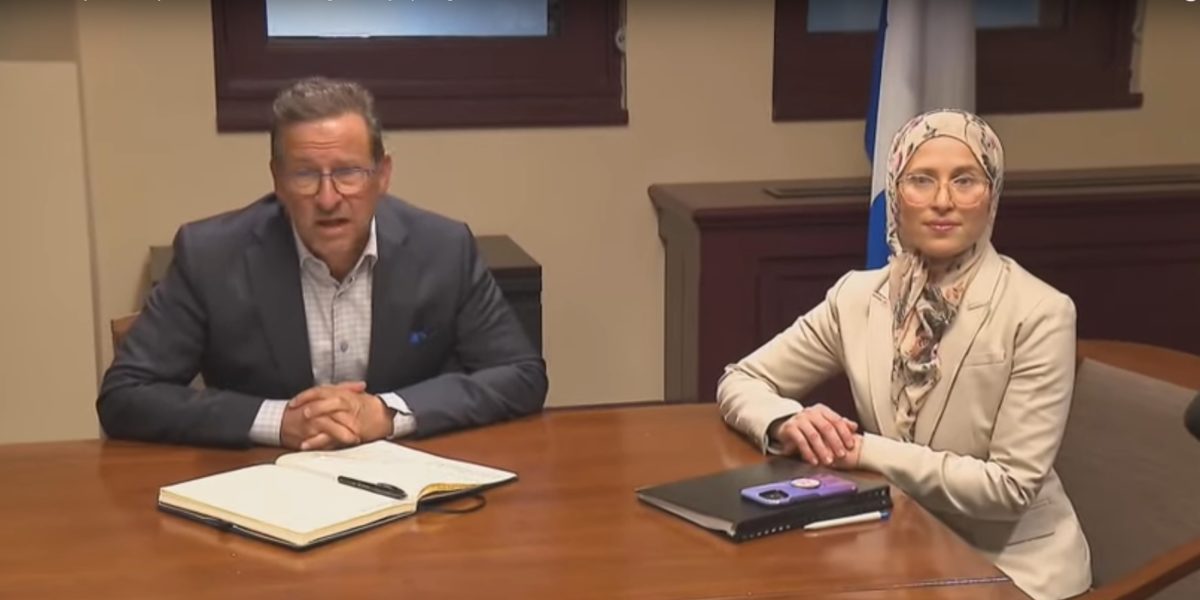Amira Elghawaby is a journalist and human rights activist, who was recently appointed by the Trudeau government as a special representative on combating Islamophobia. However, based on a column she co-wrote with the former CEO of the Canadian Jewish Congress, Bernie Farber in 2019, there have been calls for her resignation.
Apparently, she had written that: “Unfortunately, the majority of Quebecers appear to be swayed not by the rule of law, but by anti-Muslim sentiment.”
Her comment was written in the context of Bill 21 that forbids public employees like teachers and police officers from wearing religious symbols including the kippah, hijab, or the turban. Elghawaby has apologized for that column and she has received support from Quebec lawyers and activists.
However, the calls for her resignation from people like MP Yves-Francois Blanchet remain firm. The whole situation reminds me of the fact that many victims of Islamophobic incidents are women who are easily recognizable from their headscarf. Across Canada, these include women of various backgrounds including Arab, South Asian, and African, who have to be extra careful around middle-aged men who have yelled at them to “go home,” spat on them, threatened and physically assaulted them. Some things are universal. Just as in places like Afghanistan where men dictate what women can wear and whether they can hold public office, the same seems to hold true of men like MP Blanchet in Canada.
I am currently teaching a class on Futures Studies where I introduce students to look at systems and the issue of purity politics. As an example, we look at the issues of involuntary prostitution and drug addiction and question how instead of treating individuals as criminals we should rather be looking at the systems that give rise to social issues. We emphasize the point that we need to address how certain societies drive some women to the margins where they are left with no alternatives. Thus, instead of blaming those poor women, the focus should be on collective societal responsibility in creating unfavourable circumstances in the first place. Similarly, we highlight through President Obama’s video on “call-out culture” that instead of purity politics, we need to avoid extreme responses and bring people together on our common humanity.
The same concerns of systems and purity politics are relevant in the Elghawaby situation. What this means is that Elghawaby’s 2019 column arose from a system that drove Quebec towards Bill 21 that restricts civil liberties in the name of an outdated notion of laicite. Nothing is fixed. Based on Geoffrey Hodgson’s book Wrong Turnings: How the Left Got Lost, the original left of the French revolution upheld the right to private property whereas the original right was for state encroachment. These positions have reversed as the contemporary left calls for government intervention to address the ills of markets and the contemporary right upholds private property and unfettered markets. The same should hold true of our notions of freedom, secularism, or laicite, for if we freeze their meanings in a set time and space, then how different is this laicite from religion? Indeed, religion itself arose to address pressing social ills but over the centuries was frozen in time and space.
Returning to the Elghawaby case, her column for which she should not be apologizing, highlights the prejudiced system that drove Bill 21. After all, do we not make similar claims for places like Afghanistan where the system marginalizes women? Or should we expect Afghan women to apologize for their use of harsh words against the Taliban? The same fundamentalism is at play in Quebec where individual liberties are suppressed to uphold a time frozen understanding of laicite. Similarly, there is purity politics at play where Quebec is pummeling those who think and believe differently into submission. Is it not inconsistent to talk of liberty and freedom but then expect people to conform to a very rigid and narrow world view?
I do not have much power. But this much I can do in my individual capacity and that is to accept students of all beliefs, practices, and persuasions in my class. I have students who are openly gay, students who are devout Sikhs and wear a turban, and students who are devout Muslims and wear a headscarf. They come from all walks of life and for them their sexuality or religion is part of their identity. My understanding of liberty and freedom is to allow space for all of them without question. For when they feel comfortable in my class, they become free to focus on the task at hand and that is to engage in critical thinking and to strive towards becoming better citizens and human beings. The same should hold for Quebec where instead of religious practice, the focus should be on creating spaces where every citizen is free to contribute towards the betterment of society.
As teachers and educators our task is to shed light on systems of discrimination that are defended under groupthink where the desire for conformity allows people to avoid the scrutiny of such prejudice. It is this groupthink that is at play in Quebec in the Elghawaby case. It really isn’t about liberty or freedom but rather deep-rooted prejudice that is being defended by middle aged powerful men, who are behaving like the Taliban by targeting a woman who dares to speak truth to power and who exposes Islamophobia as part of an entrenched system that continues to be mindlessly perpetuated.



